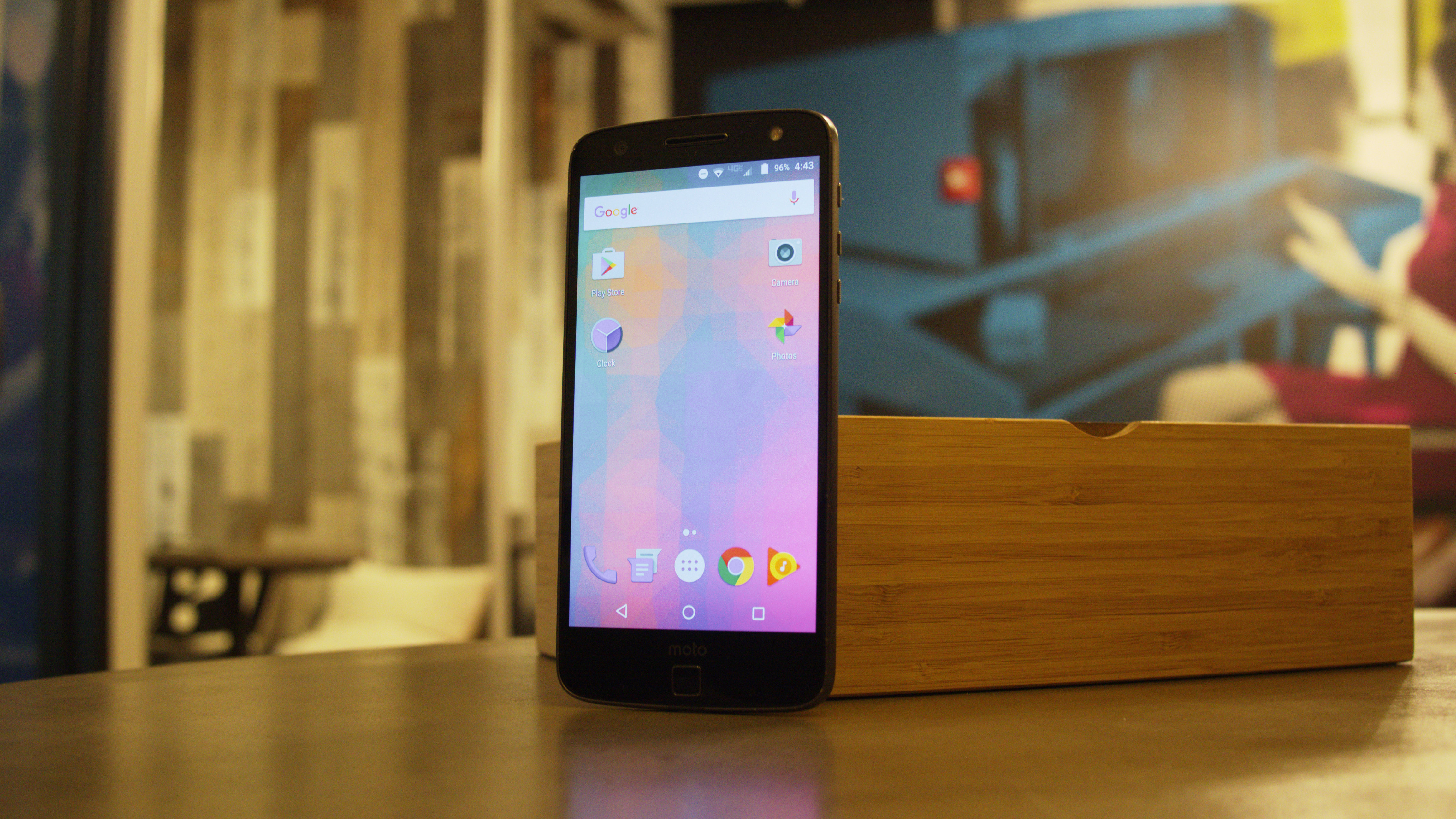Why you can trust TechRadar
The Moto Z Force offers up quite the first impression with its quad HD (2560 x 1440) AMOLED display. No matter what I find myself glancing at, it pops with vibrance and detail, even when blanketed in fingerprints.
Unlike most smartphones–even the Moto Z– the Moto Z Force is reinforced with Moto's very own Shattershield technology, which guarantees that it won't crack or shatter from a drop of about five feet. Thankfully, this means of protecting the device looks no different than its Gorilla Glass-sporting competitors and doesn't detract from its looks whatsoever.
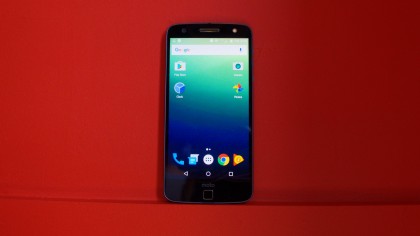
It actually works, too. Drops from waist-high onto hardwood floor didn't leave a scratch on the aluminum frame. It survived a drop on concrete, as well, but picked up a few scratches around the frame in the process.
We first saw this technology used in the Moto X Force, which this device takes a few design cues from. But compared to the X Force, we're happy to see that Moto solved how to make the Shattershield on the Z Force not look like as much like a hastily applied third-party screen protector.
The AMOLED screen measures at 5.5 inches, just like the iPhone 6S Plus. For me, that's too big for intensive one-handed use, but easy enough to wrangle with for some quick tasks if I'm in a hurry. Most will find the Z Force to be most comfortable as a two-handed affair.
Specs
While the Moto Z Force has its share of unique design attributes, what's inside of it isn't much different from what can easily be found in other modern flagships, like the Samsung Galaxy S7, Samsung Galaxy S7 Edge, HTC 10, OnePlus 3 and the LG G5.
First of all, it comes running Android 6.0 Marshmallow and Moto has done well to only make light adjustments to the stock experience. I know what you're wondering: will it support Android 7.0 Nougat? Yes, it will. We'll update this review when the operating system upgrade lands.
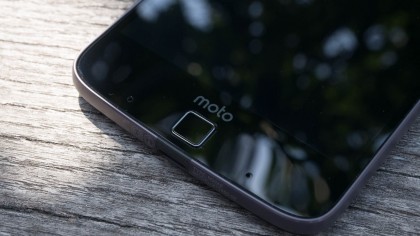
The Moto Z Force is stocked with a Snapdragon 820 quad-core processor clocked at 2.2GHz and offers up the Adreno 530 GPU to handle the visuals. If you're looking to get started with Android Pay, this phone supports NFC.
It comes with 4GB RAM, a completely sufficient amount, but it lags behind what you can get with the 6GB RAM-packed OnePlus 3. This shouldn't be your deciding point, however. 4GB of RAM is more than enough to power the modern smartphone experience.
You can choose between a Moto Z Force with either 32GB or 64GB (only available through Moto Maker) of onboard storage. But, given as they both possess a microSD slot, you're better off settling for the former and investing in a beefy microSD card instead.
Performance
Specs are just numbers on a paper until you can really get a sense of how they impact a device's performance. Considering the Moto Z Force's impressive (although somewhat standard at this point) set of specifications, my expectations for a powerful phone were met, and exceeded in some cases.
During our testing, the Snapdragon 820, paired with its healthy dose of RAM, made for a smooth experience and tore through the latest games with ease. Closing apps is usually a constant (slightly obsessive) practice to keep things moving rapidly, but this hardware means that you'll rarely have to look back.
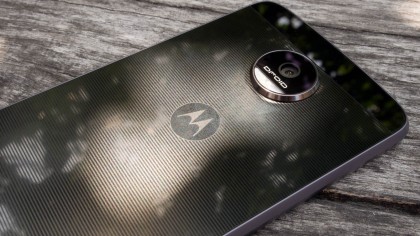
We put the Moto Z Force to the test with GeekBench 3, which provides a deeper look into the phone's system on chip (SoC) capabilities. Looking first at single-core performance, it puts up an average score of 2,341 score. For its multi-core score, the Z Force achieved an average of 5,387.
Each of these averages are on par with the numbers put up by the Samsung Galaxy S7 in the US with the same processor and the LG G5.
These results are just another way of conveying that your day-to-day experience with the Moto Z Force is going to be a breezy one, no matter what you're doing with it. It's a highly capable phone that doesn't get bogged down easily or stutter under normal-to-heavy use.
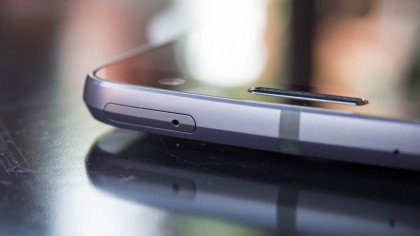
But let's say that you aren't someone who downloads a ton of apps or games. Thankfully, the Moto Z Force handles most traditional smartphone tasks well, too. Calls to an iPhone 6S on AT&T didn't sound all that great, but calling the Moto Z, reviewed by Matt Swider, sounded incredibly crisp with HD calling switched on.
If you're hoping to let tunes blare out from the Moto Z Force's built-in speaker, prepare for disappointment. The only output is at the earpiece, which tries its hardest, but can only blare out sound that's flat and tinny. You'll definitely either want to listen through headphones, a Bluetooth speaker, or with the JBL SoundBoost MotoMod instead.
Cameron is a writer at The Verge, focused on reviews, deals coverage, and news. He wrote for magazines and websites such as The Verge, TechRadar, Practical Photoshop, Polygon, Eater and Al Bawaba.
